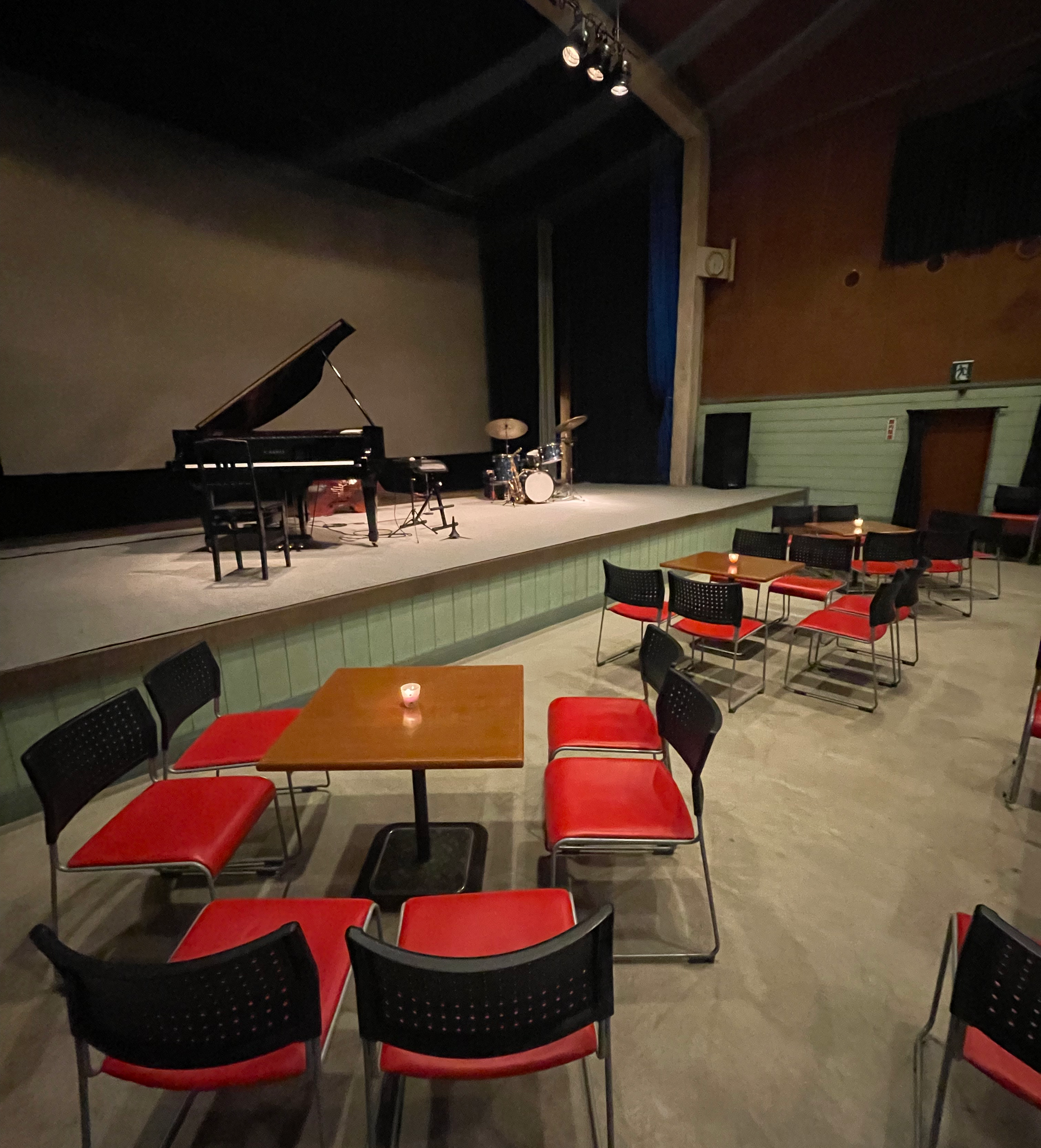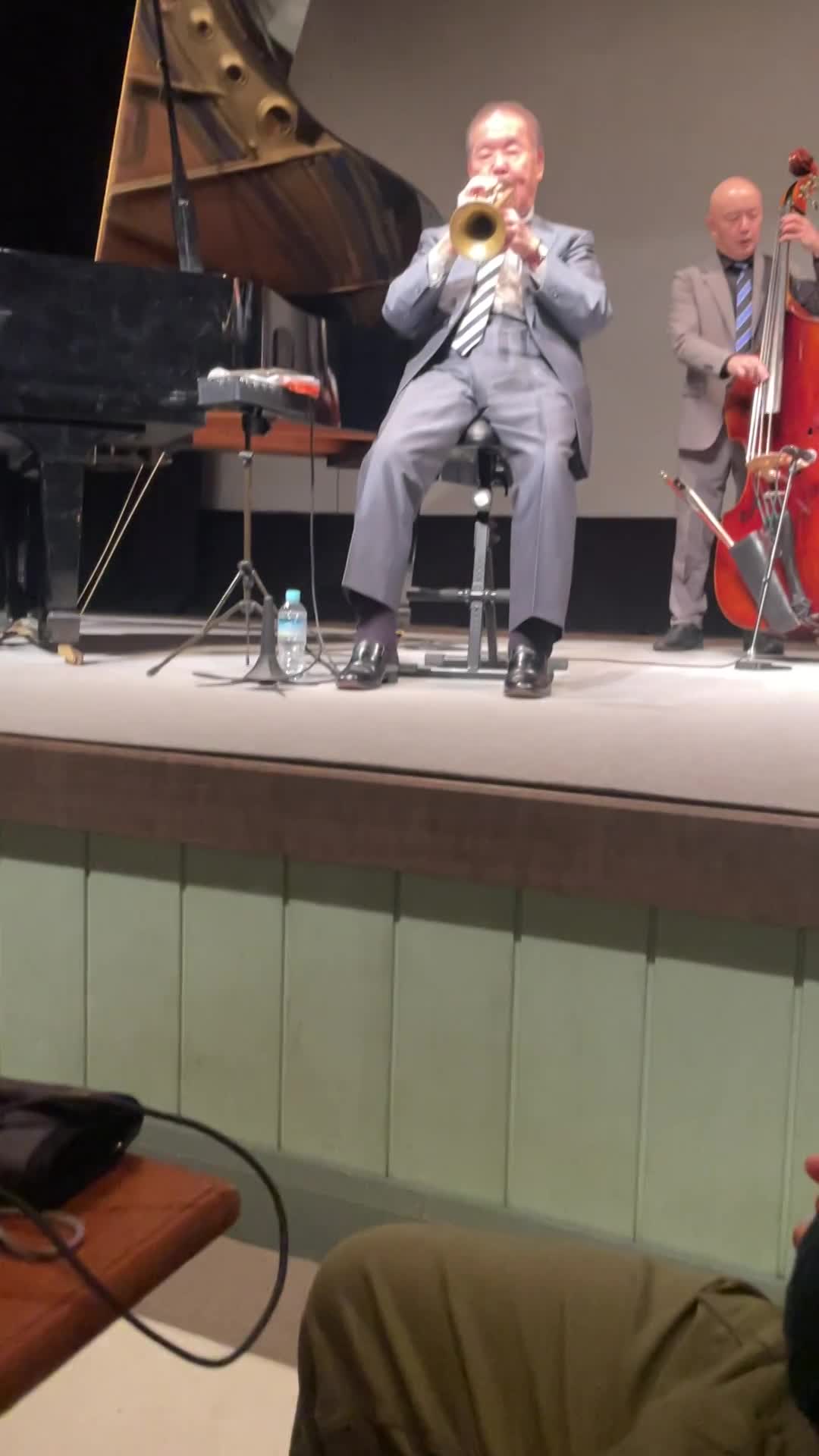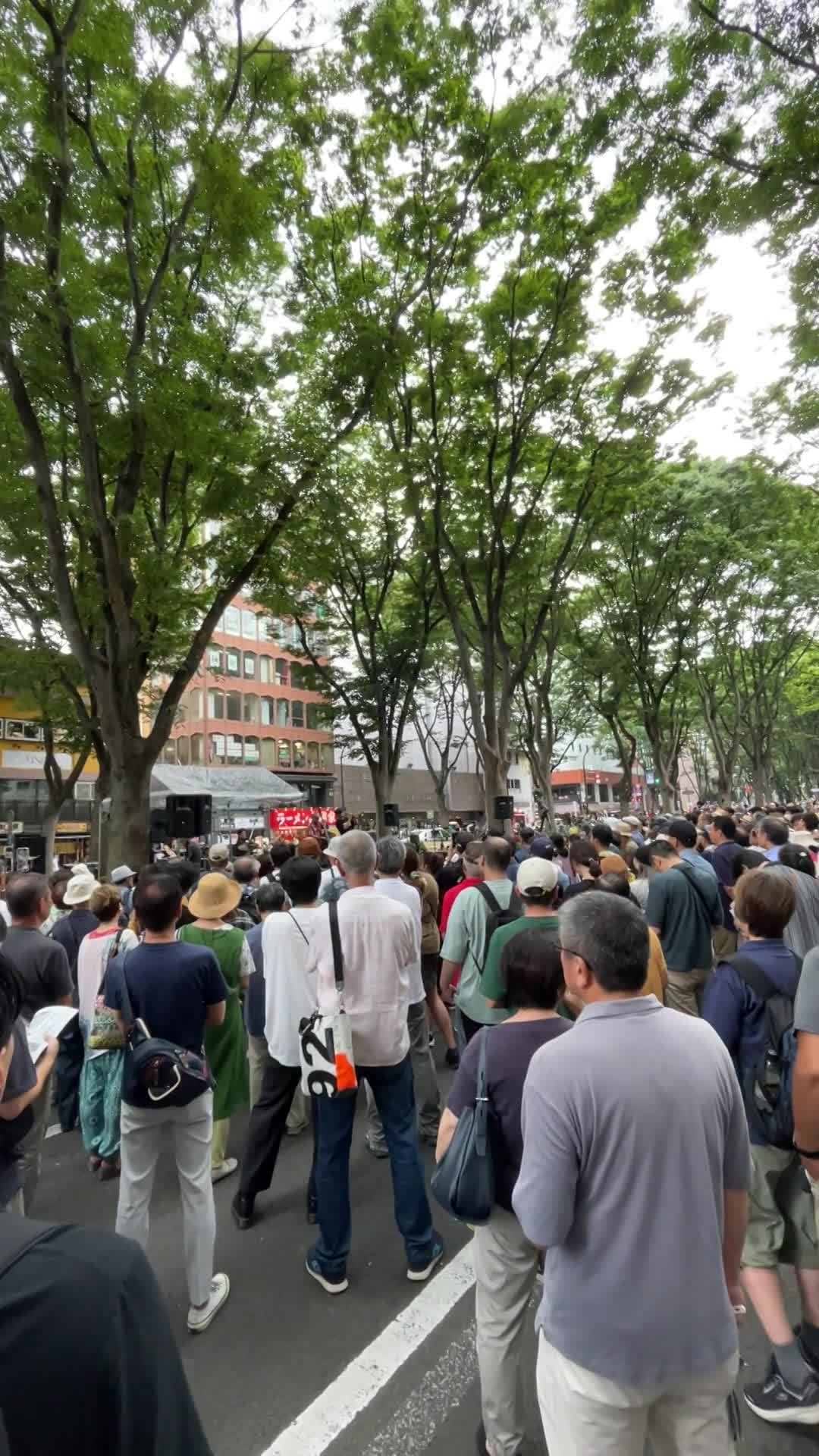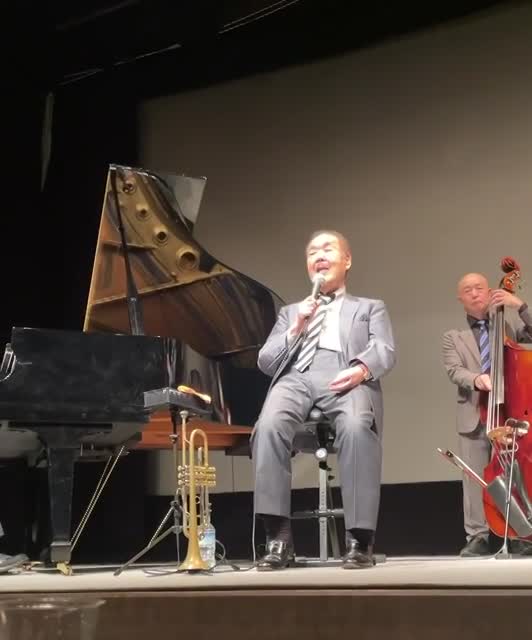The Power of Jazz and Regional Revitalization: My Experience at Ichinohe "JAZZ NIGHT 2025"
Yesterday, I had the opportunity to attend an event that honestly blew my mind. It took place at Ichinohe Bandaikan (一戸萬代館), a former Shōwa-era cinema that still preserves its magical atmosphere from the past. Originally built as a movie theater, in recent years the screen area has been transformed into a stage, giving the venue a unique versatility. Instead of the usual rows of seats at the front, there were tables set up with warm lighting, creating an intimate and cozy atmosphere. Everything was designed so that people could sit comfortably, enjoy the music with a drink and some food (in my case, two glasses of plum cocktails for just 300 yen each and a hot dog with fries for 350 yen, thanks to the restaurant ねまれや… absolutely amazing!).

The impact of the first note
From the very first moment the band started playing, I was blown away. There wasn’t a full microphone setup like in modern concerts: only the double bass was amplified, and the trumpet player occasionally used one for narration. That detail, which might seem minor, changed everything. Hearing the trumpet and saxophone directly, without any filters, embraced by the natural acoustics of the Mandaikan, was like stepping into a time machine. I felt as if I were in the 1940s listening to Charlie Parker revolutionize bebop, or in the 1950s experiencing Miles Davis unfolding cool jazz.
What struck me the most was the intimate communication between the musicians. Without having to worry about monitors or artificial mixing, everything depended on their own balance, on listening to one another, on that dialogue that is the very essence of jazz. It felt as if we were invited to their private conversation, lucky enough to hear every nuance in real time.
Intimacy versus magnitude
I’ve been fortunate enough to enjoy jazz in many settings in Japan: from tiny bars like “Toshiko Akiyoshi Jazz Museum” in Morioka, to bars in Tokyo, and even the massive Jozenji Street Jazz Festival in Sendai. Each experience has its charm: Jozenji is magical, yes, but it can also be overwhelming with its countless stages, crowds of people, and outdoor acoustics that vary depending on where you stand. Modern bars offer great technical quality, but there’s always some kind of filter between you and the music.
Ichinohe was something else. It was intimacy in its purest form: sitting comfortably with a drink in hand, eating something simple but delicious, and at the same time feeling the raw, unfiltered sound of the instruments. The Mandaikan, originally a cinema, turned out to be a perfect venue for this type of gathering, with acoustics that seemed tailor-made for jazz.
The audience and the shared experience
Another thing that impressed me was the audience. Japanese audiences are generally very respectful, but here there was an even deeper attentiveness. Everyone listened with true concentration, even if many didn’t fully understand the logic of jazz or improvisation. That silence, filled with anticipation, that collective respect, made the whole experience rise to another level.
A surprise beyond expectations
I already knew the Mandaikan, but this was my first 100% musical event there. And I can say it with confidence: the venue delivers. I went in with excitement, eager to hear how a concert would sound in that space, but what I experienced far surpassed my expectations. It was more intimate, more intense, and more authentic than I could have imagined.
The value of these events for Tohoku
This is important: I believe this event carries a value beyond personal enjoyment. Since living in Tohoku, I’ve seen how music events are steadily growing. The Chaguchagu Rock Festival, now the largest in Iwate, has only two or three editions so far. Morioka and Hachinohe host concerts too, but often with medium or smaller bands. Meanwhile, Japanese music itself is living a global moment: platforms like The First Take (the “Japanese Tiny Desk”) now add English and even Spanish subtitles, and Latin musicians have already participated. This shows the huge cultural relevance Japan is gaining, and how music builds bridges with the world.
That’s why having jazz events in Ichinohe, in a historic place like the Mandaikan, is no small thing. For me, it’s a powerful sign of revitalization, a reminder that culture and live music can breathe new life into local communities. I truly hope more concerts like this happen in the future, because this venue has a magical acoustic that deserves to be shared.
In conclusion
I’ll say it straight: this event was a real gem. It wasn’t just a concert, it was a full experience: a magical night that brought together history, music, community, and joy in every detail. If you ever get the chance to attend, don’t hesitate. Go, live it, let jazz surround you. I promise you won’t forget it.


